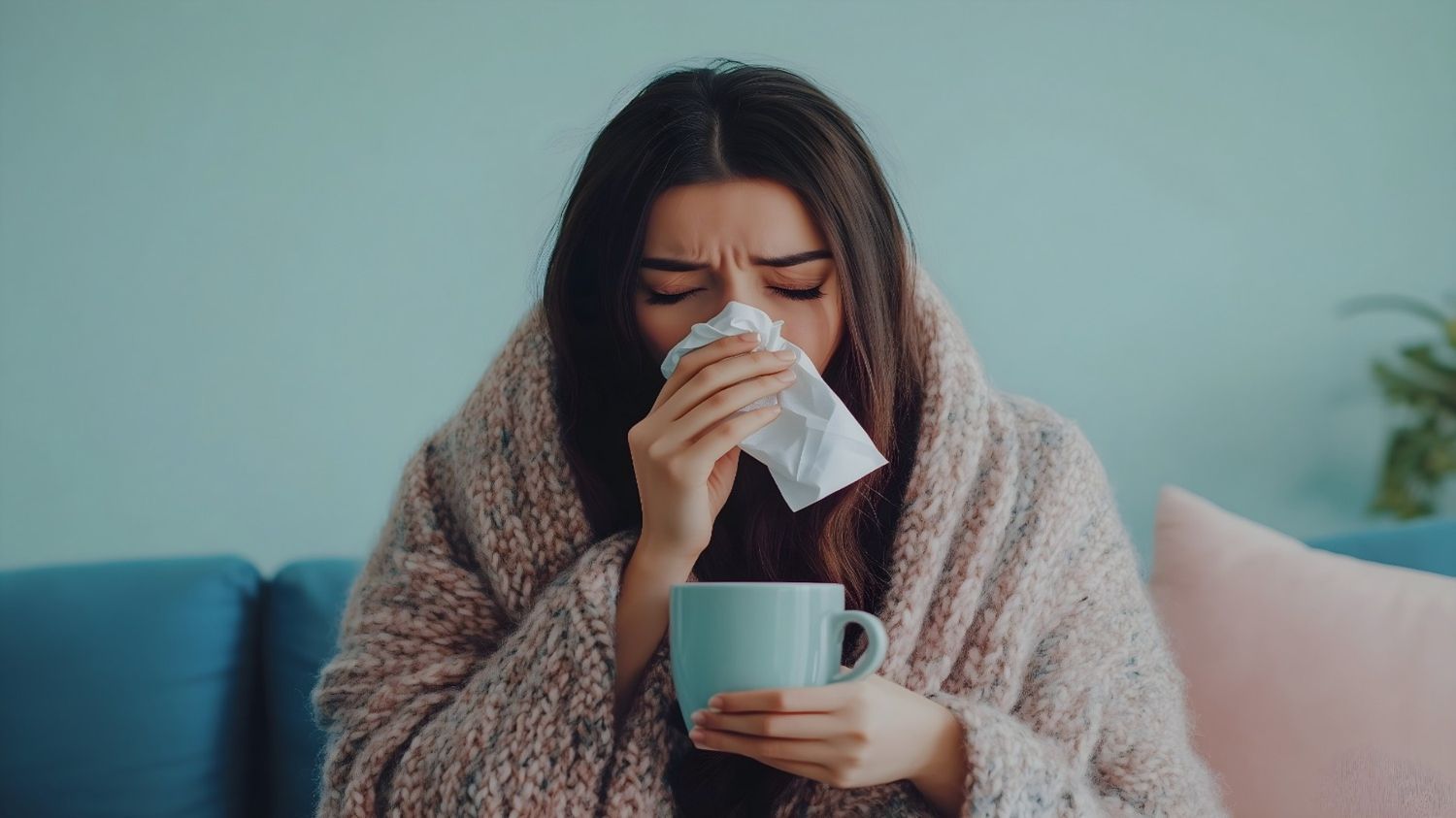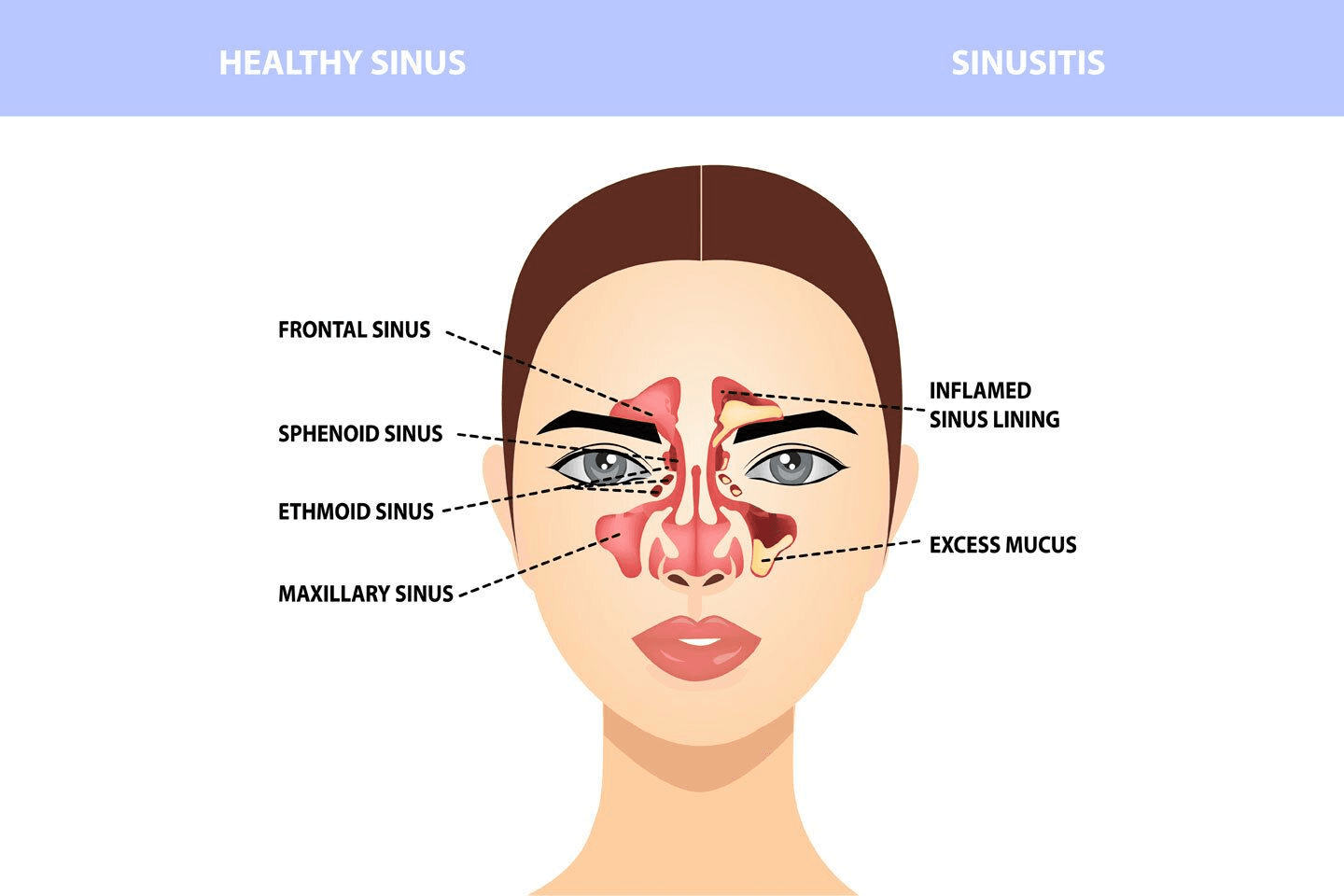
Sinusitis and Cold Weather: What You Should Know
Introduction
Some people notice their sinus symptoms worsen as temperatures drop — and winter’s dry air plays a bigger role than you might think.
Winter is that cosy time of year we all love, with the chilly air and festive vibes. But for some, the cold weather isn't all about comfort—it can also bring sinus troubles. If you’ve ever had a stuffy nose, headaches, or pain in your face when the temperature drops, you might be dealing with sinusitis.
The colder months can stir up these issues, making it important to understand how winter affects your sinuses. But don’t worry! With a little knowledge and some simple steps, you can keep the discomfort at bay and enjoy the season without the extra hassle of sinusitis.
What is Sinusitis?
Sinusitis is a common condition where the sinuses (the air-filled cavities around your nose and eyes) become inflamed. This usually happens after a cold or allergy flare-up, causing symptoms like nasal congestion, facial pressure, headache, and thick mucus. In simple terms, sinusitis is like a cold that just won't go away, and it can make you feel miserable for days or even weeks.[1]
How Cold Weather Affects Sinus Health
Cold weather can make sinusitis worse because it dries out the air in your nose, which can irritate your sinuses. When the air gets too dry, your sinuses have a hard time working the way they should, making you more likely to get an infection. The cold also makes it harder for your body to get rid of mucus, so it starts building up, causing congestion. On top of that, moving from a warm indoor space to the chilly outdoors can shock your sinuses, making them react badly and causing pain or discomfort.[2]
Dry nasal passages make it easier for irritants and germs to enter, increasing the chances of inflammation.
Symptoms to Watch for During Winter
The winter months can bring more than just the usual cold and flu symptoms. If you suffer from sinusitis, you might notice these symptoms getting worse during the colder weather:
Nasal Congestion: Your nose might feel completely blocked, making it hard to breathe.
Facial Pressure: You may feel like there's a heavy weight pressing down on your face, particularly around your forehead, eyes, and cheeks.
Headaches: The sinus pressure can cause painful headaches, especially in the morning.
Thick Nasal Discharge: You may notice mucus that is thick and yellow or green.
Coughing: The mucus can drip down your throat, triggering a cough that seems to never end.
If you experience these symptoms, it could be sinusitis, and the cold weather may be making it worse.
Who Is More Prone to Winter Sinus Issues?
- People with allergies
- Those with chronic sinusitis
- Smokers
- People working in dry indoor environments (AC/heaters)
Treatments for Sinusitis
If you’re suffering from sinusitis, several treatments can help relieve your symptoms. Most treatments focus on reducing inflammation, clearing mucus, and easing pain:[4]
Sinus Balloon Dilation: This minimally invasive procedure uses a small balloon catheter to open up blocked sinus passages, improving drainage and providing relief from chronic sinusitis symptoms.
Steam Inhalation: Breathing in warm, moist air can help loosen mucus and soothe irritated sinuses. You can do this by sitting in a steamy bathroom or using a bowl of hot water and a towel over your head.
Saline Nasal Sprays: These can help flush out mucus and keep your nasal passages moist.
Hydration: Drinking plenty of fluids helps thin mucus, making it easier to drain from your sinuses.
Rest: Giving your body time to heal is crucial when battling sinusitis. Make sure you get enough sleep and avoid overexertion.
If symptoms persist beyond 7–10 days or recur, advanced treatment, such as balloon dilation, may be recommended.
Tips to Manage Sinusitis in Cold Weather
Managing sinusitis in cold weather requires a few lifestyle adjustments. Here are some helpful tips to ease your symptoms:
Use a Humidifier: Keeping the air in your home moist can prevent your nasal passages from drying out. A humidifier can be especially helpful during the winter months when indoor air tends to be dry.
Dress Warmly: Protect your face from the cold by wearing scarves or face masks. This can prevent cold air from irritating your sinuses when you're outside.
Stay Hydrated: Drink plenty of warm liquids, such as herbal teas, broths, and water, to keep your mucus thin and easier to clear.
Avoid Sudden Temperature Changes: Going from a heated room into cold air can shock your sinuses. Try to avoid extreme temperature changes to reduce discomfort.
Preventive Measures for Winter Sinus Health
Preventing sinusitis during the colder months is all about taking good care of your sinuses. Here are some tips to keep your sinuses healthy and avoid problems:
Avoid Allergens: Dust, mould, and pet dander can trigger sinus problems. Try to keep your home clean and free of allergens.
Keep Your Nose Clean: Regularly rinsing your nasal passages with saline solutions can help prevent congestion and keep your sinuses clear.
Boost Your Immune System: Eating a healthy diet rich in vitamins and minerals can help strengthen your immune system, making you less susceptible to colds and infections that can lead to sinusitis.
When to See a Doctor?
While most cases of sinusitis can be managed at home, it’s important to know when to see a doctor. If your symptoms last more than 10 days, get worse, or are paired with a high fever, it might be time to get medical help. A doctor can figure out if your sinusitis is due to an infection that needs antibiotics or if other treatments are necessary to get you feeling better. It’s always better to be safe and get the right care when things don’t improve.
MESIRE by Meril
Mesire is a medical device used in a procedure called sinus balloon dilation, which helps treat chronic sinusitis. The device works by gently opening up blocked sinuses with a small balloon, offering a less invasive alternative to traditional surgery. Unlike surgery, there's no cutting of tissue or bone, which means a quicker recovery.
This procedure helps reduce symptoms like pain and congestion, making it especially helpful for people whose sinus problems don’t improve with medications. With Mesire, patients can usually get back to their normal activities faster, and the treatment is designed to be safe, effective, and precise for managing sinus issues.
The procedure is generally safe when performed by an ENT specialist and suitable for patients who don’t respond to medication.
Conclusion
Sinusitis can be uncomfortable, but knowing how cold weather affects your sinuses and how to manage it can help a lot. Staying warm, using humidifiers, and taking care of your sinuses can reduce your chances of getting sinusitis this winter. If your symptoms don’t improve, don’t hesitate to reach out to a healthcare provider for the right treatment. Stay healthy and breathe easy as you enjoy the winter months!
Key Takeaway:
Cold weather can worsen sinusitis, but simple preventive steps — like humidifiers, hydration, and warmth — can significantly reduce symptoms.



